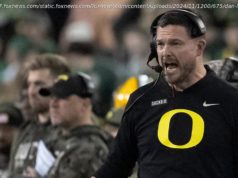LONDON – A U. S.-born British politician who once told USA TODAY in an interview that the chance of him becoming prime minister was about as likely as…
LONDON – A U. S.-born British politician who once told USA TODAY in an interview that the chance of him becoming prime minister was about as likely as finding Elvis on Mars or being reincarnated as an olive, is the frontrunner to take over for outgoing British leader Theresa May, according to betting markets and opinion polls.
Boris Johnson was born in New York City to British parents, but renounced his U. S. citizenship in 2016 amid a taxes crackdown by the Internal Revenue Service on the global earnings of dual nationals. He last lived in the United States as a five-year-old.
« Boris Johnson is a friend of mine. He has been very, very nice to me, very supportive, » President Donald Trump said in July last year after Johnson resigned as May’s foreign secretary over her handling of Britain’s attempt to leave the European Union – Brexit.
Like Trump, Johnson appears to enjoy the limelight and attracts controversy wherever he goes. He was once forced into an apology to the nation of Papua New Guinea for comparing infighting in his Conservative Party to « Papua New Guinea-style orgies of cannibalism and chief-killing. » He was fired as a journalist for making up a quote.
May’s fraught three-year tenure in office will officially end on June 7, she announced Friday. The 62-year-old Conservative Party leader was forced from power for similar reasons. She will remain as a caretaker prime minister until Conservative Party lawmakers and members vote to elect a successor. In Britain, the public elects a party, not a candidate, meaning the government stays the same for now, until there is an election. The process is expected to take about six weeks. First, Conservative Party lawmakers hold a series of votes to whittle the field down to two candidates. Then, those two candidates are voted on by party members across the country.
Theresa May: Britain’s embattled leader resigns premiership amid Brexit deadlock
Experts say that whoever ends up as Britain’s next leader won’t dramatically rewrite one of the closest diplomatic, economic and military alliances in history: The « special relationship » between the U. S. and Britain, a phrase and diplomatic modus operandi coined by former British Prime Minister Winston Churchill in 1946.
British-American goodwill has accrued through two world wars, the Cold War, several conflicts in the Middle East and close cooperation in fighting international terrorism. Often, it’s said, the two nations are only divided by a common language.






